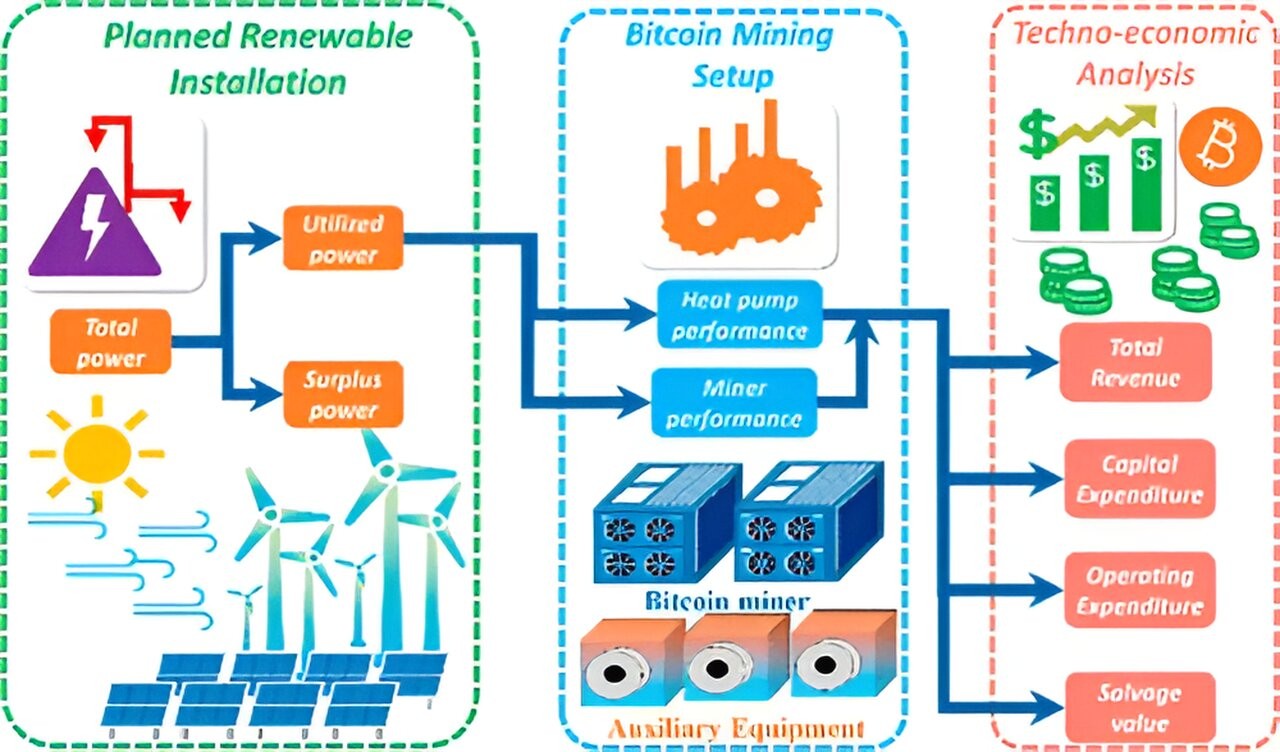
Bitcoin mining is emerging as an unexpected ally in advancing renewable energy adoption by solving key challenges that have long plagued the green energy sector.
The renewable energy industry faces two major obstacles: inconsistent power generation due to weather dependency and geographic limitations that separate power sources from population centers. These factors result in wasted energy, known as curtailment, when renewable facilities generate more power than they can sell or transmit.
Bitcoin mining operations are uniquely positioned to address these inefficiencies. Unlike traditional industries, mining facilities can be placed directly next to renewable energy sources and can rapidly adjust their power consumption based on energy availability.
"Bitcoin mining can be placed right next to wind and solar farms, monetizing 100% of that energy and enabling renewable energy providers to survive and continue to build," explains Dennis Porter, CEO of the Satoshi Action Fund.
This flexible partnership is already showing results. Marathon Digital Holdings recently announced plans to power their Bitcoin mining using wind farm energy in 2024. The arrangement allows the wind facility to maintain consistent revenue even during periods of low grid demand.
The symbiotic relationship extends beyond waste reduction. By providing steady demand for electricity, mining operations can justify building renewable infrastructure in remote areas rich in natural resources but lacking economic development. This has prompted visionary projects aiming to construct entire cities powered by green energy, with Bitcoin mining as the foundational energy buyer.
Research supports these benefits. A paper co-authored with former ERCOT CEO Brad Jones demonstrated how Bitcoin mining can stabilize power grids while supporting renewable energy providers. Industry data indicates over 50% of global Bitcoin mining now uses renewable sources.
Governments are taking notice. States like Texas are integrating Bitcoin mining into their renewable energy strategies, while countries with abundant natural resources like Iceland and El Salvador are using mining to enhance their sustainable energy sectors.
As the world pursues cleaner energy solutions, the partnership between Bitcoin mining and renewables offers compelling advantages: energy providers maximize efficiency and revenue, while the cryptocurrency industry becomes more environmentally sustainable. This collaboration may prove instrumental in accelerating the global transition to renewable energy.